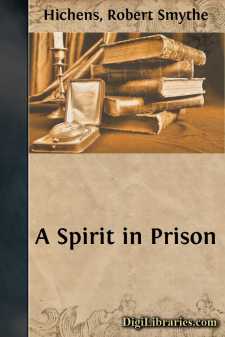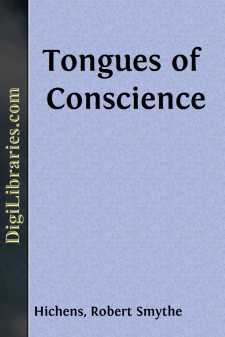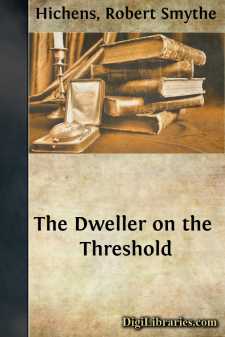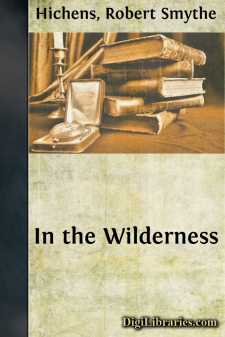Categories
- Antiques & Collectibles 13
- Architecture 36
- Art 48
- Bibles 22
- Biography & Autobiography 813
- Body, Mind & Spirit 142
- Business & Economics 28
- Children's Books 17
- Children's Fiction 14
- Computers 4
- Cooking 94
- Crafts & Hobbies 4
- Drama 346
- Education 46
- Family & Relationships 57
- Fiction 11829
- Games 19
- Gardening 17
- Health & Fitness 34
- History 1377
- House & Home 1
- Humor 147
- Juvenile Fiction 1873
- Juvenile Nonfiction 202
- Language Arts & Disciplines 88
- Law 16
- Literary Collections 686
- Literary Criticism 179
- Mathematics 13
- Medical 41
- Music 40
- Nature 179
- Non-Classifiable 1768
- Performing Arts 7
- Periodicals 1453
- Philosophy 64
- Photography 2
- Poetry 896
- Political Science 203
- Psychology 42
- Reference 154
- Religion 513
- Science 126
- Self-Help 84
- Social Science 81
- Sports & Recreation 34
- Study Aids 3
- Technology & Engineering 59
- Transportation 23
- Travel 463
- True Crime 29
The Folly Of Eustace 1896
Description:
Excerpt
Some men deliberately don a character in early youth as others don a mask before going to an opera ball. They select it not without some care, being guided in their choice by the opinion they have formed of the world's mind and manner of proceeding. In the privacy of the dressing-room, the candles being lighted and the mirror adjusted at the best angle for a view of self, they assume their character, and peacock to their reflection, meditating: Does it become me? Will it be generally liked? Will it advance me towards my heart's desire? Then they catch up their cloak, twist the mirror back to its usual position, puff out the candles, and steal forth into their career, shutting the door gently behind them. And, perhaps till they are laid out in the grave, the last four walls enclosing them, only the dressing-room could tell their secret. And it has no voice to speak. For, if they are wise, they do not keep a valet.
At the age of sixteen Eustace Lane chose his mask, lit the candles, tried it on, and resolved to wear it at the great masquerade. He was an Eton boy at the time. One fourth of June he was out in the playing-fields, paying polite attentions to another fellow's sister, when he overheard a fragment of a conversation that was taking place between his mother and one of the masters. His mother was a kind Englishwoman, who was very short-sighted, and always did her duty. The master was a fool, but as he was tall, handsome, and extremely good-natured, Eustace Lane and most people considered him to be highly intelligent. Eustace caught the sound of his name pronounced. The fond mother, in the course of discreet conversation, had proceeded from the state of the weather to the state of her boy's soul, taking, with the ease of the mediocre, the one step between the sublime and the ridiculous. She had told the master the state of the weather—which, for once, was sublime; she wanted him, in return, to tell her the state of her boy's soul—which was ridiculous.
Eustace forgot the other fellow's sister, her limpid eyes, her open-worked stockings, her panoply of chiffons and of charms. He had heard his own name. Bang went the door on the rest of the world, shutting out even feminine humanity. Self-consciousness held him listening. His mother said:
"Dear Eustace! What do you think of him, Mr. Bembridge? Is he really clever? His father and I consider him unusually intelligent for his age—so advanced in mind. He judges for himself, you know. He always did, even as a baby. I remember when he was quite a tiny mite I could always trust to his perceptions. In my choice of nurses I was invariably guided by him. If he screamed at them I felt that there was something wrong, and dismissed them—of course with a character. If he smiled at them, I knew I could have confidence in their virtue. How strange these things are! What is it in us that screams at evil and smiles at good?"
"Ah! what, indeed?" replied the master, accepting her conclusion as an established and very beautiful fact. "There is more in the human heart than you and I can fathom, Mrs. Lane."
"Yes, indeed! But tell me about Eustace. You have observed him?"
"Carefully. He is a strange boy."
"Strange?"
"Whimsical, I mean. How clever he may be I am unable to say. He is so young, and, of course, undeveloped. But he is an original. Even if he never displays great talents the world will talk about him."
"Why?" asked Mrs. Lane in some alarm.
To be talked about was, she considered, to be the prey of scandalmongers. She did not wish to give her darling to the lions.
"I mean that Eustace has a strain of quaint fun in him—a sort of passion for the burlesque of life. You do not often find this in boys. It is new to my experience. He sees the peculiar side of everything with a curious acuteness. Life presents itself to him in caricature. I——— Well hit! Well hit indeed!"
Someone had scored a four.
The other fellow's sister insisted on moving to a place whence they could see the cricket better, and Eustace had to yield to her....












